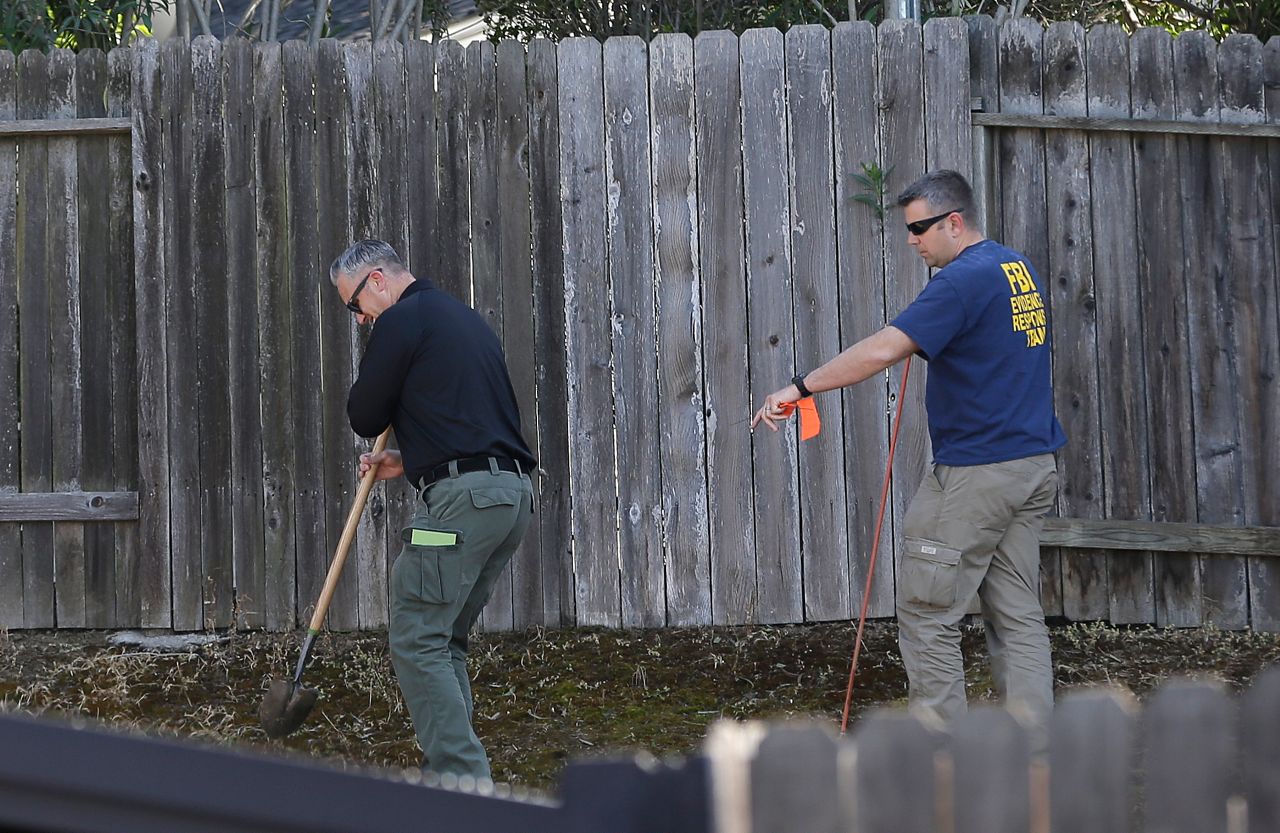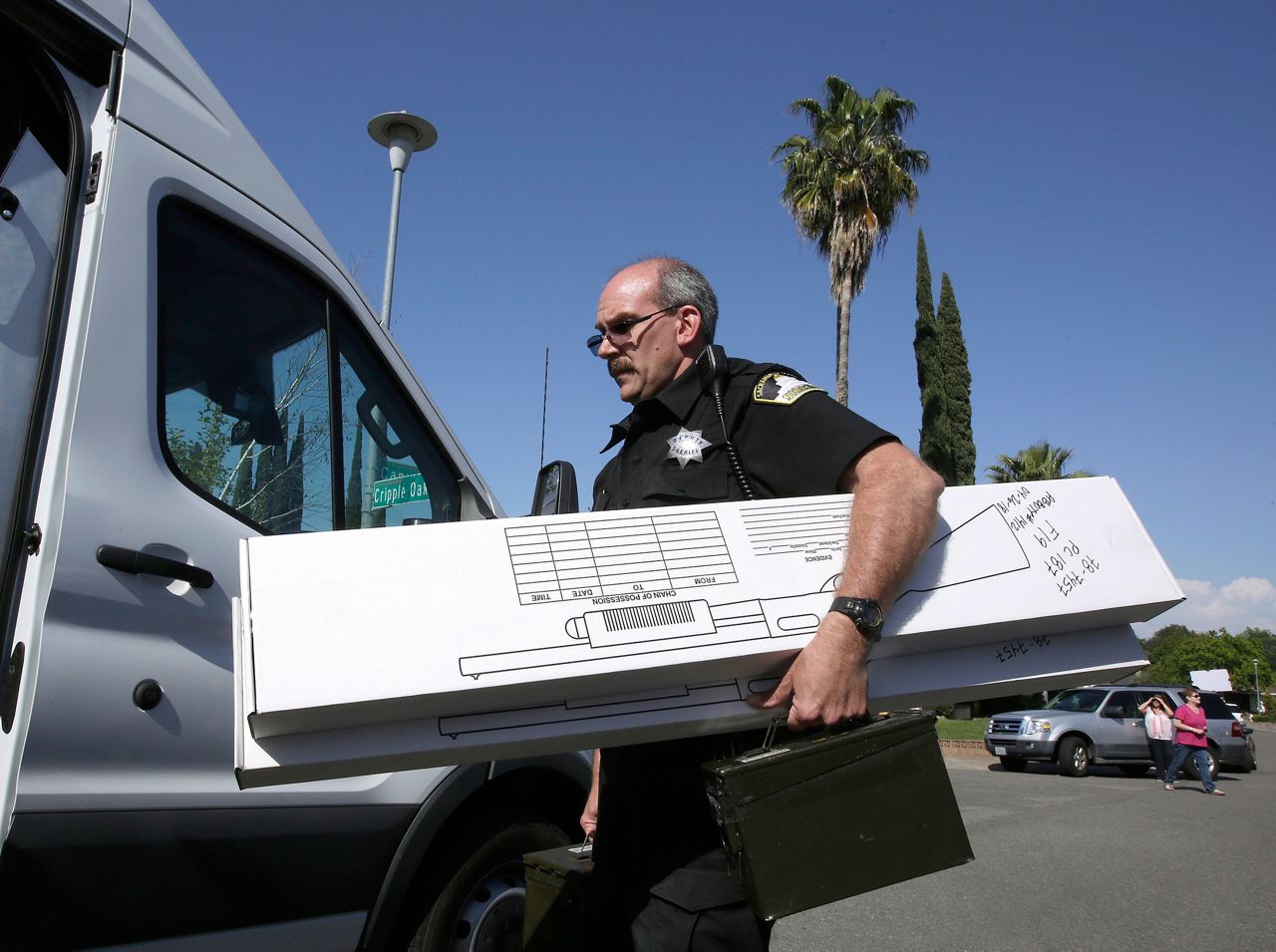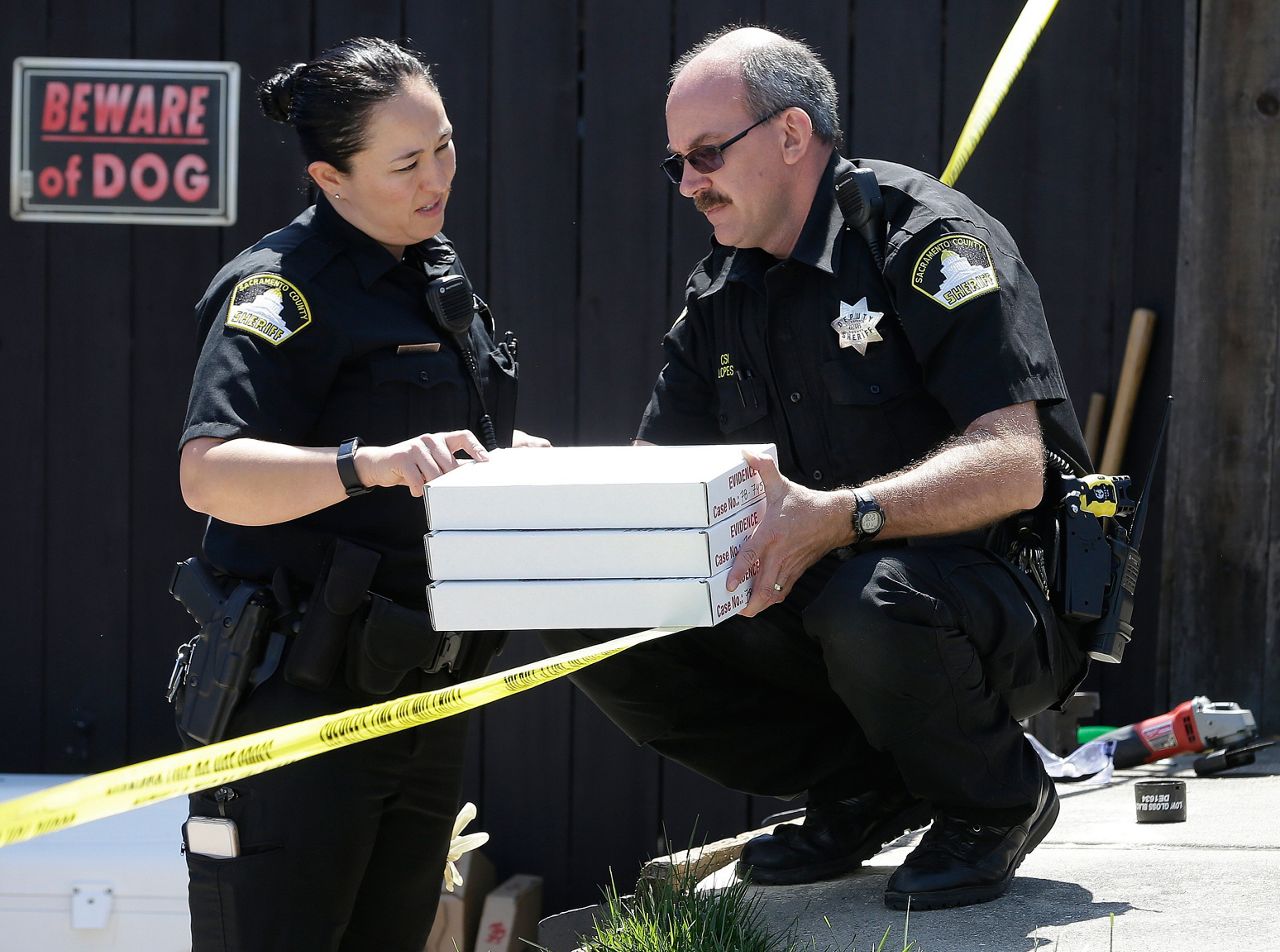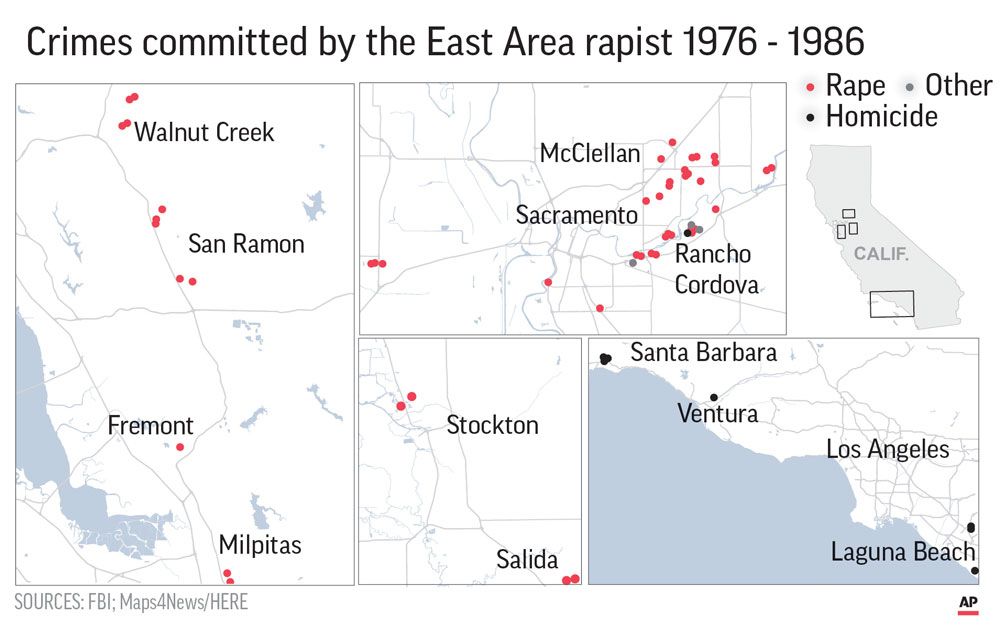SACRAMENTO, Calif. (AP) — Investigators hunting for the so-called Golden State Killer turned to searching genetic websites in 2017 but misidentified an Oregon man as a potential suspect. A year later, after using a similar technique, they are confident they've caught the serial rapist and killer who eluded capture for four decades.
In March 2017, an Oregon City police officer, working at the request of investigators in California, convinced a judge to order a 73-year-old man in a nursing home to provide a DNA sample.
Court documents obtained by The Associated Press said detectives used a genetic profile based off DNA from crime scenes linked to the serial killer and compared it to information on a free online genealogical site.
Investigators cited a rare genetic marker, which the Oregon man shared with the killer, to get the judge to issue the order. The Oregon City man is in extremely poor health in a rehabilitation facility and was unable to answer questions Friday.
His daughter said his family was not aware that authorities took a DNA sample from him while he was lying in bed at the rehabilitation center until she was contacted by the FBI in April 2017 and asked to help expand the family's genetic tree in the search for suspects.
The woman, an amateur genealogist, cooperated, but ultimately investigators determined none of her relatives were viable suspects, she said. The woman spoke to The Associated Press on condition of anonymity because she did not want the family's name publicly linked to the case.
"I don't like that they thought that my dad was the bad guy, but the truth is they were able to rule out people in my dad's (family) tree," she said. "They didn't have to look at those people anymore."
The family was angry the FBI had not told them about the sample but felt better after reading an AP story that investigators obtained a warrant, she said.
"I mean, they go from California to Oregon to get my dad's DNA? They clearly thought he was the bad guy," she said. "I think DNA is amazing and if you've done something wrong you don't deserve to be protected."
Ultimately investigators turned to a different genealogical site and arrested a man who they say was one of California's most feared and elusive serial killers.
On Friday, Joseph James DeAngelo appeared in court to face murder charges. Handcuffed to a wheelchair in orange jail scrubs, the 72-year-old looked dazed and spoke in a faint voice to acknowledge he was represented by a public defender. He did not enter a plea.
DeAngelo, a former police officer, has been charged with eight counts of murder, and additional charges are expected, authorities said.
"We have the law to suggest that he is innocent until he's proven guilty," said his attorney, Diane Howard.
Investigators arrested DeAngelo on Tuesday after matching crime-scene DNA with genetic material stored in an online database by a distant relative. They relied on a different website than in the Oregon search, and did not seek a warrant for his DNA. Instead, they waited for him to discard items and swabbed them for DNA, which proved a conclusive match to evidence from crimes more than 30 years ago, they said.
The co-founder of the genealogy website used by authorities to help identify DeAngelo said on Friday that he had no idea its database was tapped by law enforcement.
The free genealogy website, which pools DNA profiles that people upload and share publicly to find relatives, said it has always informed users its database can be used for other purposes.
But the site's co-founder Curtis Rogers said the search was "done without our knowledge" and the company does not "hand out data."
Officials did not need a court order to access GEDmatch 's large database of genetic blueprints, lead investigator Paul Holes told the Mercury News in San Jose, California. Major commercial DNA companies say they do not give law enforcement access to their genetic data without a court order.
But critics warned the method could jeopardize privacy rights.
"People who submit DNA for ancestors testing are unwittingly becoming genetic informants on their innocent family," said Steve Mercer, chief attorney for the forensic division of the Maryland Office of the Public Defender.
"It seems crazy to say a police officer investigating a very serious crime can't do something your cousin can do," said Erin Murphy, a DNA expert and professor at New York University School of Law. "If an ordinary person can do this, why can't a cop? On the other hand, if an ordinary person had done this, we might think they shouldn't."
While most consumers would submit DNA to a commercial company such as Ancestry.com and 23andMe to create a genetic profile, the FBI did so for investigators, Holes told The New York Times.
The profile was then uploaded to GEDmatch using a fake profile and pseudonym, the Times reported. The site allows users to remain anonymous.
A year earlier, Holes had identified a rare genetic marker in the assailant's DNA. He entered the information among 189,000 profiles at the genealogy website, YSearch.org, and the results led to a relative of the Oregon man.
A spokeswoman for YSearch.org, which is provided by FamilyTreeDNA.com, said the company was not contacted by law enforcement. The company said it takes the privacy of its customers very seriously but supports "ethically and legally justified uses" of scientific research in genetics and genealogy.
Sacramento District Attorney Anne Marie Schubert told AP she was unaware of the Oregon misfire and didn't believe genealogical sites were used before DeAngelo was identified.
___
Balsamo reported from Los Angeles and Flaccus reported from Oregon City, Oregon. Associated Press writers Brian Melley in Los Angeles and Matt O'Brien in Providence, Rhode Island, contributed to this report.
Copyright 2018 The Associated Press. All rights reserved. This material may not be published, broadcast, rewritten or redistributed.










